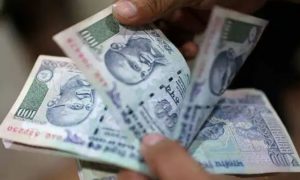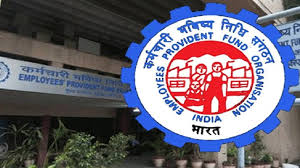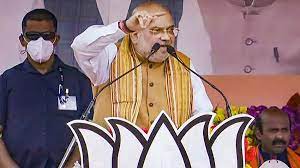Apollo Hospitals Enterprise Ltd. has so far trained 6,000 staff to give out jabs across its network of 71 hospitals, hundreds of clinics and thousands of pharmacies, according to Managing Director Suneeta Reddy.
India’s largest hospital chain says it’s ready to administer one million coronavirus vaccine doses a day, but the government has not made clear how vaccines will be distributed and whether private health-care networks will be involved.
Apollo Hospitals Enterprise Ltd. has so far trained 6,000 staff to give out jabs across its network of 71 hospitals, hundreds of clinics and thousands of pharmacies, according to Managing Director Suneeta Reddy, who said the company’s talks with officials in New Delhi had yet to provide any firm guidance.
“We need to know if the government wants to handle the whole thing or allow the private sector to do it,” Reddy said in an interview Tuesday. “The issue here is how can we double the amount of people that can be vaccinated,” she said from Chennai, adding that Apollo is ready to help in any capacity. The government “can do it, but it will take time.”
How and if India decides to work with its large network of private hospitals on vaccine distribution could be crucial to any success in reining in the world’s second-worst outbreak, which has inflicted deep economic damage. India may start inoculation efforts within weeks as front-running developers apply for emergency authorization.
There will be a “flood of Covid vaccines” in the next five to six months, Krishna Ella, the chairman of Bharat Biotech International Ltd. — which is producing one of India’s leading indigenous candidates — told a conference on Tuesday.
Apollo has been telling clients via its digital app that a shot “should be available in 60-120 days” and customers will “be the first ones to know about the vaccines.”
Capacity Concerns
Companies vying to roll out those vaccines, along with public health experts, have raised concerns about India’s capacity to swiftly inoculate its population of about 1.3 billion people.
There are also fears of unequal access, given the enormous wealth disparities across India’s cities and vast hinterlands.
Apollo Hospitals has held talks with the Serum Institute of India Ltd., the world’s largest vaccine maker which has already produced millions of doses of AstraZeneca Plc’s shot. But Reddy said developers are waiting on direction from New Delhi “because all of them have committed capacity to the government first.”
Rajesh Bhushan, secretary to the federal health ministry, told Bloomberg last month that India will rely on its national immunization network, which currently targets 26.7 million newborns and 29 million pregnant women every year. Experts believe that system will need to be significantly built up with help from private players to meet India’s needs.
Private hospitals in India have been criticized for sitting on the sidelines of the coronavirus crisis. Though the private sector accounts for around 60% of India’s total hospital bed capacity, there were widely reported instances of some private hospitals and doctors refusing to treat Covid-19 patients as cases accelerated in India starting from June.
Apollo has treated more than 30,000 Covid patients and provided about 400,000 tests, said Suneeta Reddy, one of four daughters of octogenarian founder Prathap C. Reddy, who established the company in 1983. India has nearly 10 million cases of the coronavirus, and is adding over 30,000 new infections daily.
The company saw a “lost quarter” earlier this year, Reddy said. This followed the sudden decision by Prime Minister Narendra Modi to impose a draconian national lockdown in March with little notice. While Reddy said she supported the restrictions, Apollo suffered a loss of 2.08 billion rupees ($28 million) in the three months through June, though it’s seeing a better-than-expected recovery, posting net income of 602.7 million rupees in the latest quarter.
Medical Tourism
With about 12% of the firm’s revenue derived from international customers, Apollo has received a blow from the near total disappearance of thousands of overseas patients who visit India each year. Until October, India had closed its borders to medical tourism, a market that was expected to be worth $9 billion in 2020, according to the Federation of Indian Chambers of Commerce & Industry.
A rise in local demand has compensated for that loss, Reddy said. Many wealthy Indian patients who used to go abroad for treatments are now Apollo’s customers. Occupancy rates across Apollo’s hospitals now runs at about 67%, close to pre-pandemic levels. Roughly 15%-20% of those are Covid patients in specially segregated facilities, she said.
“I’ve always said the international business was just icing on the cake, definitely not our bread and butter,” Reddy said. “It’s great if it comes, but without it we’ve learned to meaningfully fill our beds.”
The company will raise up to 15 billion rupees through an equity issue in January, Reddy said. The proceeds will be used to acquire IHH Healthcare Bhd.’s remaining 50% stake in a Kolkata hospital, reduce Apollo’s debt, as well as fund upgrades of its digital app and any potential bolt-on acquisitions.





































